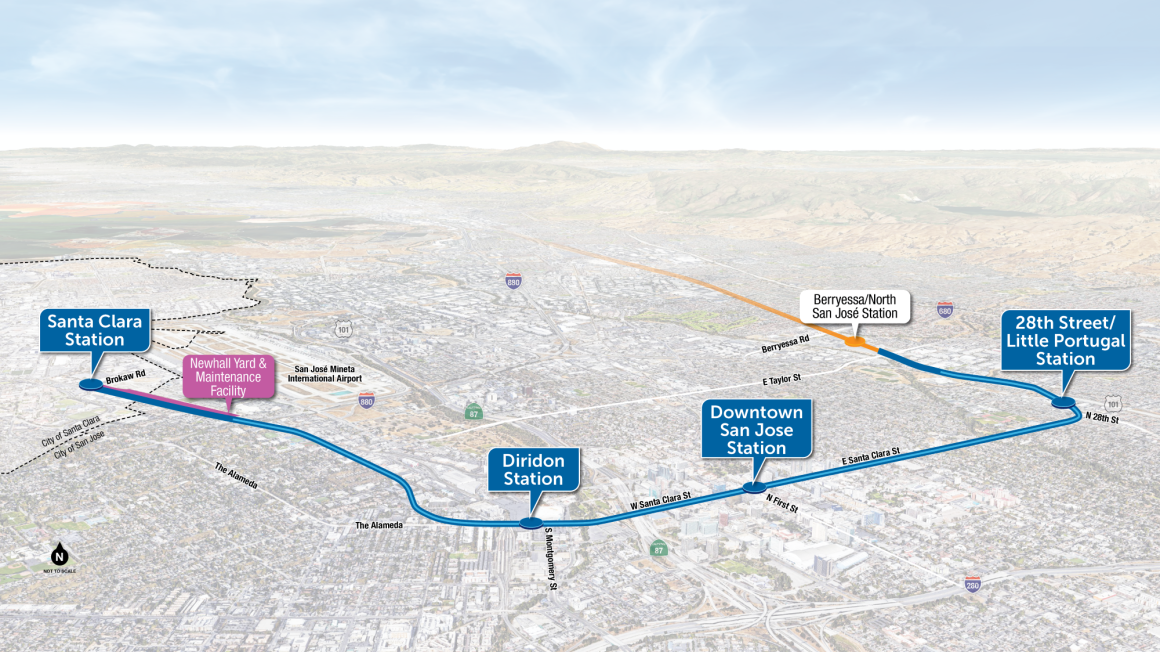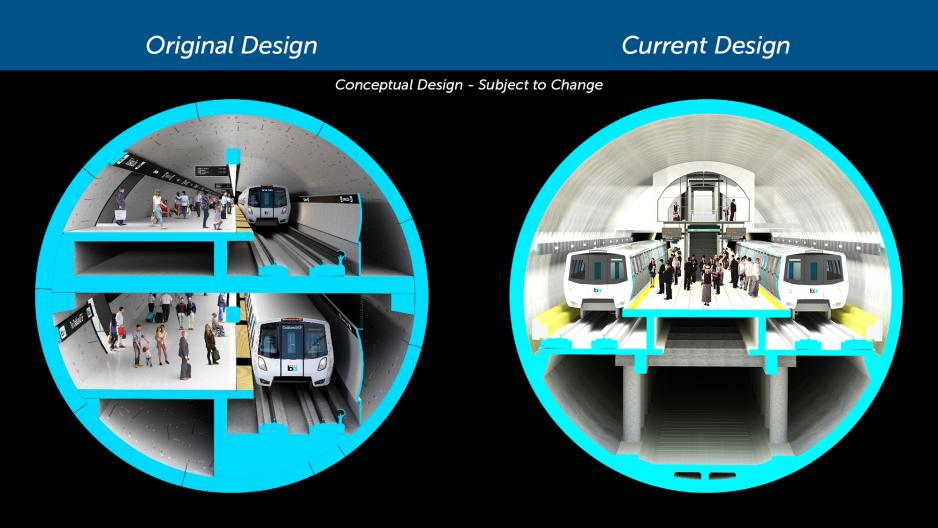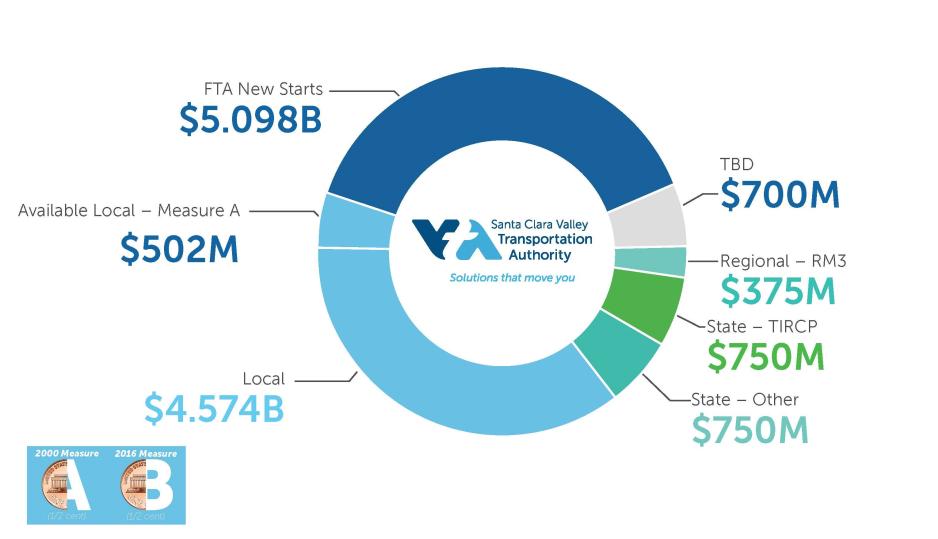VTA has been working diligently over the past 20 years to deliver the BART extension to Santa Clara County. VTA constructed and opened Phase I, a 10-mile, two-station extension in 2020, and will soon start construction on Phase II, an additional 6-mile, 4-station extension, through downtown San Jose and into Santa Clara. The Project’s cost and schedule continue to be of utmost importance for project delivery and are of high interest to all stakeholders.
The new estimated project cost and schedule for VTA’s BART Phase II Extension Project is $12.2B with passenger service anticipated in 2036. The Changing Costs of Mega Infrastructure Project Explained blog details how mega-capital projects’ cost and schedule evolves throughout the various stages of a project. The Board Workshop on October 20, 2023, provided details of what exactly has contributed to these new projections for VTA’s BART Phase II Project. During the workshop, the Board also announced the establishment of an Ad Hoc Committee to examine further ways to deliver the BART Phase II project as expediently and efficiently as possible. Although project costs are increasing, the anticipated local sales tax revenues of 2000 Measure A and 2016 Measure B are also increasing when compared to previous projections. The operation and maintenance element of the project is also seeing a benefit with increased 2008 Measure B tax estimates.
“We are doing everything possible as responsible stewards of taxpayer monies to maintain costs at every stage. We will continue to do so in the face of inflationary pressures and hikes in interest rates.” says General Manager and CEO, Carolyn Gonot.
When a project’s basic elements (e.g., station locations, alignment, mode, etc.) are defined, an early cost estimate is developed. As the project’s planning, design and engineering is advanced and refined, the baseline cost estimate becomes more accurate and reliable. In addition, major infrastructure project budgets include additional funds for certain levels of risks (unforeseen circumstances or challenging site conditions) as well as anticipated and unanticipated occurrences – also known as risks and contingencies.
This new cost and schedule reflect the progress of the Project, additional funds for risk and contingencies and the major changes in market conditions since the last cost estimate was developed pre-COVID in 2020.
National trends and market conditions contributing to the higher costs include:
- Labor, Material and Equipment Escalation
- Increasing Interest Rates
- Resource Limitations
- Supply-Chain Challenges
- Lack of Competition
- Current Contracting Environment
- Pandemic Effect
This estimate also reflects the significant progress the project has made over the last two years including the advanced design, award of the tunnel and trackwork contract, and contractor-proposed design innovations. Some of these advancements include:
- Shifting to a larger diameter tunnel that can accommodate side-by-side tracks with a single center platform, which improves the passenger experience at each of the three underground stations.
- Elimination of the Mid-Tunnel Facilities
- Reconfiguration of the 28th Street/Little Portugal BART Station
- Refinements to the Downtown San José BART Station design to improve passenger experience through simplified access and circulation
- Accommodations for future entrances at Downtown San José and Diridon BART Stations
Figure: 2023 Innovation for Platforms within the Tunnel
New Schedule
The revised schedule reflects new dates to bring on contractors to complete construction, additional time to test the system prior to revenue service, longer construction duration, and contingencies at key project milestones based on lessons learned and the regulatory environment. Early construction activities are still planned to start in each station area in 2024, with specific months still to be determined. Many of these adjustments were based on the guidance of FTA during their prior review.
Controlling Costs
VTA is still positioned to fund the $12.2 billion project with funding coming from the Federal Transit Administration (FTA) New Starts Program and mix of state, regional, and local funds.
As a steward of public funds, VTA is taking multiple measures to control project costs as design and construction advances. Current value engineering efforts are being conducted and are estimated to produce savings for the project while not compromising service or the passenger experience. VTA is also refining the Project’s contract delivery strategy, shifting away from the Design-Build model towards the more traditional Design-Bid-Build model for the remaining contracts to construct VTA’s BART Phase II Project. VTA will continue to closely monitor project costs and will employ more flexible contract packaging to mitigate design and construction risks in addition to fluctuations in market conditions.
Carolyn Gonot emphasizes that funding for the completion of BART to Silicon Valley will not take away from other planned VTA projects. VTA has projected a 10-year balanced budget for the agency without sacrificing service and is in a strong and healthy position to manage inflationary impacts.” Despite Project costs increasing, VTA’s BART Silicon Valley Project is still among the largest, most important, and most anticipated transportation projects in the United States. When completed, the extension will sustainably provide the future growth of Silicon Valley and the Bay Area with world-class public transportation.


